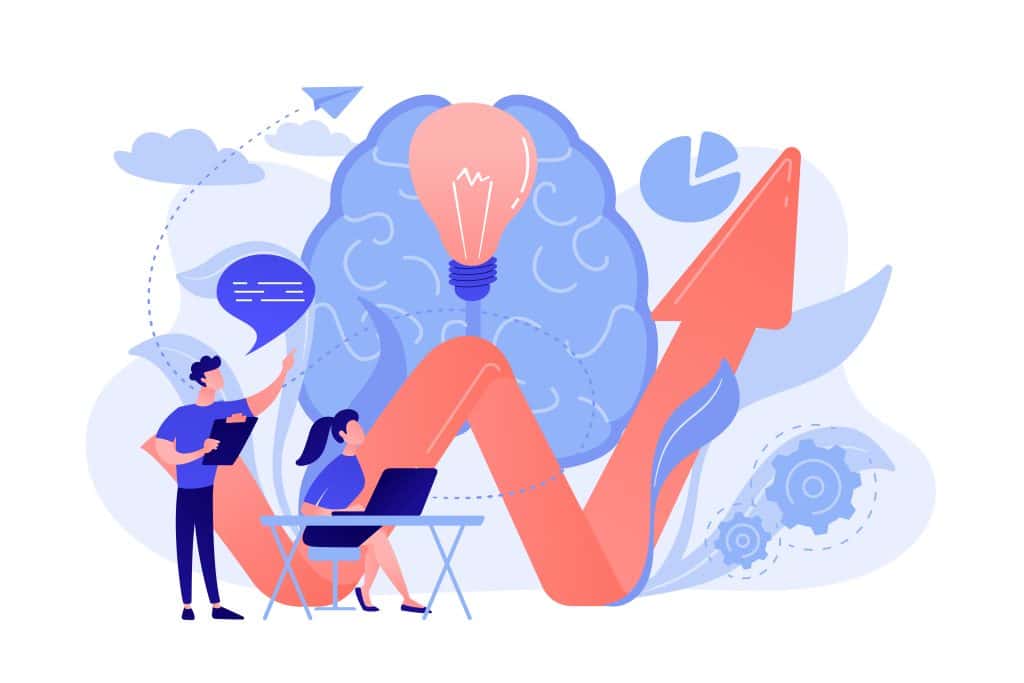In a world characterized by rapid change, complexity, and uncertainty, one skill stands out as crucial for intellectual growth: tolerance for ambiguity. Specifically, this psychological concept refers to the ability to endure uncertainty and complex situations without becoming overly anxious or seeking immediate answers. In the context of thought growth, this ability not only allows individuals to develop their critical thinking, creativity, and problem-solving skills but also equips them to navigate through complexity and uncertainty. As a result, those who embrace ambiguity are better prepared to tackle challenges and find innovative solutions in an ever-evolving landscape.

What is Tolerance for Ambiguity?
Tolerance for ambiguity is the psychological ability to accept situations that are uncertain or unclear. It contrasts with intolerance for ambiguity, which can lead to stress, avoidance of challenging tasks, and a preference for simple, clear-cut answers. Individuals with high tolerance for ambiguity are more likely to embrace complex situations, view them as opportunities for growth, and navigate uncertainty with ease.
This cognitive flexibility is vital in today’s world, where rapid advancements in technology, diverse opinions, and complex global issues make it increasingly difficult to find definitive answers. Instead of seeing ambiguity as a threat, people who are tolerant of ambiguity understand that uncertainty is a natural part of problem-solving and creativity. They become more adept at synthesizing information, adapting to change, and thriving in environments where clear answers are scarce.
The Link Between Tolerance for Ambiguity and Intellectual Growth
- Improved Problem-Solving Skills
Tolerance for ambiguity fosters better problem-solving because it encourages individuals to engage with complexity rather than shy away from it. When faced with an ambiguous situation, a person with a high tolerance can hold multiple perspectives, seek diverse solutions, and remain open to new approaches, thus developing critical thinking skills. In contrast, someone with a low tolerance for ambiguity might quickly dismiss complicated problems, reducing their ability to develop effective solutions. Research shows that people who embrace uncertainty are more likely to engage in creative problem-solving (Leith & Reilly, 2017). - Enhancing Creativity
Creativity thrives in uncertainty. Ambiguous situations often require individuals to think outside the box and explore various possibilities, thus fostering creativity. In environments that demand tolerance for ambiguity, individuals are more likely to generate innovative ideas, as they do not feel constrained by rigid rules or expectations. Studies have shown that individuals with a high tolerance for ambiguity score higher on creativity measures because they can explore new ideas and solutions without being paralyzed by the fear of making mistakes (McLuhan, 2019). - Cognitive Flexibility
Cognitive flexibility, the ability to adapt one’s thinking in response to new information or changing circumstances, is another benefit of tolerance for ambiguity. This flexibility allows individuals to adjust their mental frameworks when presented with new, conflicting information. Cognitive flexibility is essential for growth because it enables individuals to reconsider their beliefs and adapt their strategies based on evolving situations. In the rapidly changing fields of science and technology, researchers who accept ambiguity are able to explore new hypotheses without getting bogged down by the need for immediate certainty (Rosen & Schuldt, 2018).
The Impact of Tolerance for Ambiguity on Decision-Making
In decision-making, tolerance for ambiguity plays a pivotal role. People with high tolerance for ambiguity are less likely to rush to conclusions or make decisions based on incomplete information. Instead, they tend to evaluate options thoroughly and are more comfortable with making decisions in situations of uncertainty. This methodical approach often leads to more informed and balanced decisions.
In business, leaders who tolerate ambiguity navigate market uncertainties more effectively and make strategic decisions focused on long-term goals rather than immediate outcomes. They recognize that they cannot control all variables and view uncertainty as an asset that fosters innovation and adaptation opportunities.
Moreover, tolerance for ambiguity is closely linked to emotional regulation. When people accept uncertainty, they are less likely to feel stressed or overwhelmed, which allows them to make decisions more effectively, even in high-pressure situations. In contrast, individuals who struggle with ambiguity may avoid decisions altogether, leading to stagnation and missed opportunities.
How to Develop Tolerance for Ambiguity
While tolerance for ambiguity may come naturally to some, it is a skill that can be cultivated over time. Here are several strategies to develop this essential skill:
- Embrace Uncertainty Gradually
Start by deliberately placing yourself in situations that involve ambiguity. Instead of seeking immediate answers, allow yourself to sit with the discomfort of uncertainty. Over time, this will help you become more comfortable in complex situations. - Adopt a Growth Mindset
Viewing ambiguity as an opportunity for growth rather than a threat can significantly improve your tolerance for uncertainty. A growth mindset encourages individuals to see challenges as chances to learn and develop, which can alleviate the anxiety that often accompanies ambiguous situations. - Practice Reflective Thinking
Engaging in reflective thinking, where you evaluate your responses to uncertain situations, can help you understand your reactions and improve your emotional regulation. By acknowledging your discomfort with ambiguity, you can work on strategies to manage that discomfort and respond more constructively. - Challenge Your Need for Immediate Answers
Often, people with a low tolerance for ambiguity seek instant solutions because they feel uncomfortable with uncertainty. Practice delaying your need for answers and give yourself permission to explore multiple perspectives before forming conclusions.
Conclusion
In conclusion, tolerance for ambiguity is an essential trait that supports thought growth, creativity, and effective decision-making. Embracing uncertainty and complexity enables individuals to become better problem-solvers, thinkers, and innovators. By fostering tolerance for ambiguity, we can navigate the challenges of an increasingly complex world and continue to develop intellectually.
As we face a future defined by rapid technological change, global challenges, and diverse perspectives, cultivating tolerance for ambiguity will be a key factor in personal and collective success. With this skill, individuals will be better equipped to adapt to change, explore new possibilities, and thrive in uncertainty.
References
- Leith, P., & Reilly, P. (2017). The Role of Ambiguity Tolerance in Problem-Solving: Insights from Cognitive Psychology. Journal of Cognitive Development, 32(4), 99-111. Available at: https://journals.sagepub.com (Accessed: 29 July 2025).
- McLuhan, M. (2019). The Global Village: Transformations in World Life and Media in the 21st Century. New York: Oxford University Press. Available at: https://global.oup.com (Accessed: 29 July 2025).
- Rosen, C., & Schuldt, B. (2018). Cognitive Flexibility and the Ability to Navigate Ambiguity in Decision Making. Journal of Applied Psychology, 103(2), 256-265. Available at: https://www.apa.org (Accessed: 29 July 2025).









